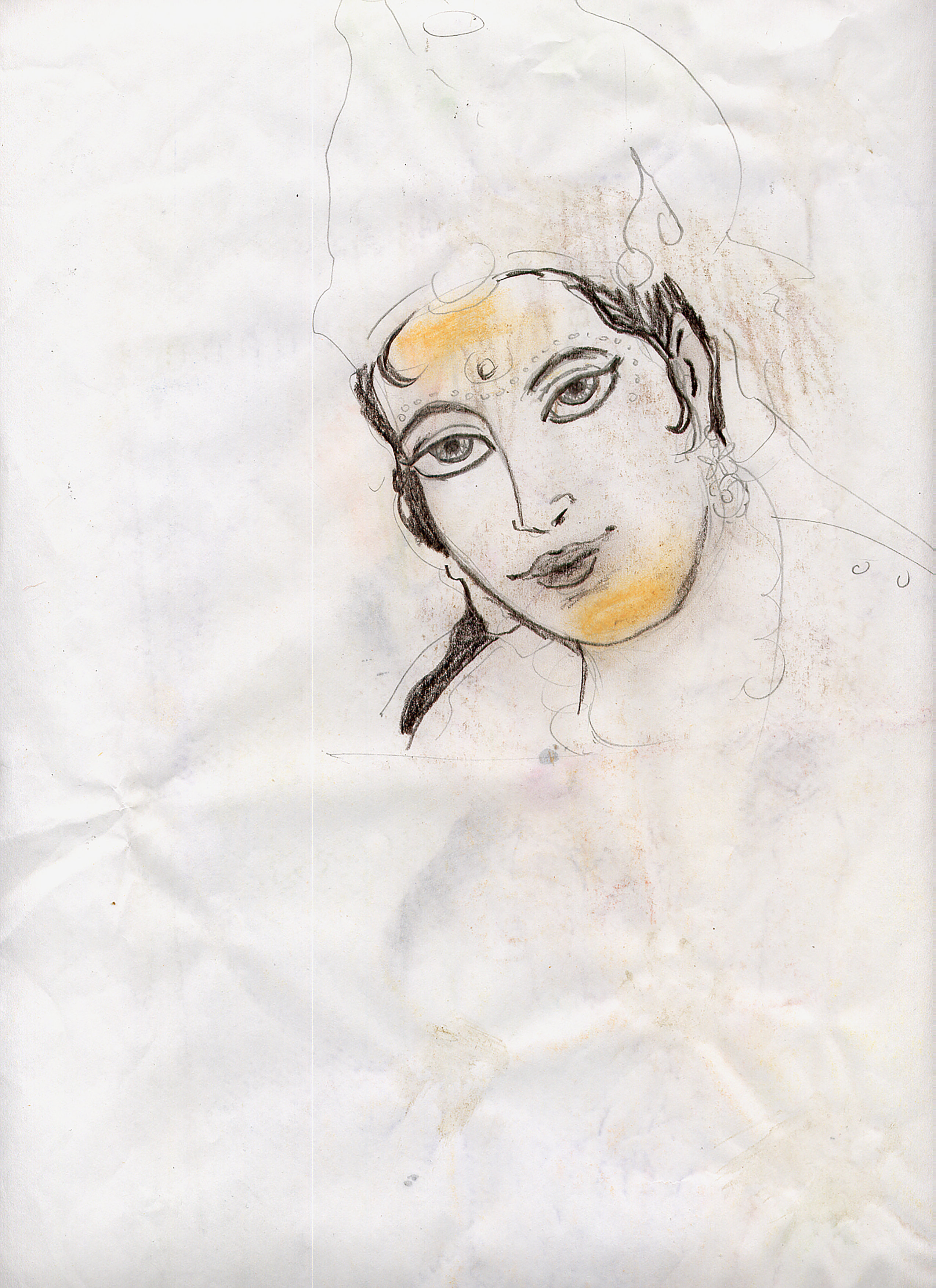2003.1a

NOTE
Preparatory sketch of Lord Krishna by Langham Bailey, 2003 for
A Stronger Self
. Flash animation on plasma screen network, Selfridges & Co, Oxford Street, London UK. Pencil, pastel sketch scanned by the artist (precise date unknown). The complete text of A Stronger Self
reads: I saw all of the uncertainty and possibility ahead of me, and all of the things and the people that would be lost and the new things that would come. I saw the whole flow of it. And wanted to be voracious, to consume it all.
Let us talk then, you and I, about our whole lives live at the edge, not in an obvious or showy way, but as adventurers into the human heart. A whole life lived at the edge, at the coalface of feeling and reason.
You say, you have no choice but to believe in good. You have to commit yourself to good to the idea that good is good. And in some way you carry with you the authority of a good universe.
A kind of bloodiness, a transforming, bloody insistence: the physical underpinning of your feeling. So that you command in a way, and all of that stands behind you, shows itself as beauty.
You can feel good will towards someone which never fails, but you can fail in your humanity, at the base of your capabilities as a human being. You can fail because you are fearful, immobilised by fear.
Something inside you capitulated, not in a naive or childish way, but something substantial moved, you want to say like a sea lock, like the gate that holds back or admits the sea. And the sea is in, the mass of the high tide is in the lock. And it is hopeless to have any expectation. The moment you expect - or worse - demand, everything is hopelessness, retraction, fear, escape.
I loved you, not in a passive or fearful way, but as a self-determining, clever, compassionate adult. I loved you because of your brilliance for love, for nakedness, for truth. I felt of the same harsh, ruthless, unforgivably true flesh.
And how little is really meaningful in any of our existences, but working towards what's true, that epic leap, of cruelty and love and pain and truth. True like dust.
You cried because you had come so close to the source of loving itself, by loving someone in the complete absence of yourself. You loved in the absence of yourself, and all the good in the universe was attracted suddenly, drew close.
And what seems like madness is sanity. And what seems reckless is wise.
And isn't our true nature written on the outside in the end? So that your laughing soul becomes laughter heard or the unexpected playfulness of odd things said. And isn't that almost too appropriate: the insubstantial traces left by angels, laughter in the corridor.